is your approach to love giving paranoid gollum energy?
sabotaging connection by clinging too tightly
For as long as I can remember, I’ve approached my most important relationships with a starving, clinging energy that tended to push away those I longed to be closest to.
From an early age, love felt like a finite resource—something I needed to hoard and control before it inevitably ran out. I want to go back and hug that version of myself. She had no idea she was sabotaging the very thing she wanted most by choking it out with her desperate fingers.
I had no idea that love was limitless. No one ever told me that, and I certainly didn’t grow up feeling that as any kind of inherent or embodied truth.
“MY PRECIOUS”
If you haven’t seen or read The Lord of the Rings, you’ve still likely seen depictions of one of its most recognizable characters, Gollum.
But Gollum wasn’t always Gollum—he started out as Sméagol.
Over time, Sméagol became so obsessed with and consumed by the need to control and possess the One Ring—believing it held the key to his happiness and survival—that this intense attachment twisted him into Gollum, a shadow of his former self, consumed by paranoia and fear of losing what he hoarded.
Gollum’s single-minded fixation on the Ring led to his isolation from others and ultimately his own destruction, as the very thing he clung to so desperately was what ended up completely eroding his identity and humanity.
Looking back on my closest relationships throughout my childhood, adolescence, and early 20s, I see how my approach to love and intimacy was giving major Paranoid Gollum Energy, or 'PGE' (a phrase I often use on my podcast).
Gollum’s tragic transformation is a perfect metaphor for how my own need to control and possess love distorted my true self, leading to a self-fulfilling prophecy of my deepest fear: abandonment.
Completely unconscious of my high levels of emotional vampirism, my Paranoid Gollum Energy drove me down a long and confusing path of loneliness and despair, as I constantly found myself wondering why the people I became closest to (and loved most) ended up wanting to be as far away from me as possible.
THE ICK
The intersection between love and control is a complicated and uncomfortable territory that many navigate but few are willing to discuss openly.
The main reason for this is that, for the most part, we’re completely unconscious of this dynamic playing out in our own lives. It's a hell of a lot easier to recognize when this desperate and thirsty energy is being directed at you from someone else.
Everyone knows what it feels like to get ‘The Ick.' I don’t feel like I need to spend multiple paragraphs spelling this one out for you—you’ve likely experienced it first hand, and you know exactly how it feels.
When The Ick hits, there’s no going back.
Someone you were convinced was your soulmate just a day ago suddenly becomes the person who makes you want to jump out of your skin (and maybe out the nearest window) every time their name lights up your phone.
But what’s even harder to face—and much harder to admit—is when we ourselves become the giver-of-the-ick.
This is when our own Paranoid Gollum Energy creeps in and wrecks something that could have been really good for us. It’s devastating. And the worst part? It’s completely preventable.
But once the damage is done, it’s nearly impossible to undo. This realization is what sends us down into those dark, painful shame spirals—ones I know all too well.
GETTING TO THE ROOT
To break free from this never-ending cycle, I had to confront the deeply paradoxical nature of human relationships—how our insatiable desire to be close to someone can drive us to the very behaviors that push them away.
Like most lessons in my life, I had to learn this one the hard way.
Even in my earliest childhood friendships, I wanted to be the 'only one' in my favorite person’s life.
I think many of us struggle with this undercurrent of jealousy and possessiveness, even outside of romantic relationships. When I finally got brutally honest with myself, I saw how deeply ingrained my need for exclusivity and validation really was.
And because all of this was largely unconscious, it became like a forgotten school lunch under a car seat in the heat of summer—growing more rotten and harder to ignore.
It's time to get honest with yourself. It’s just you and me here—no judgment…
★ Do you melt into a puddle of insecurity, possessiveness, and jealousy when you’re not the sole focus of your favorite person’s attention?
★ Do you start questioning your entire relationship if they have close connections with someone other than you?
★ Does this tendency often lead to massive blow-ups, fights, and novel-length text messages that you later regret?
I’m convinced that all this fear and these self-sabotaging behaviors are fueled by societal narratives around love that glorify the idea of 'soulmates' or 'the one,' leading us to believe that love must be all-consuming to be 'real.' [I explored these themes more deeply in my analysis of Taylor Swift’s embodiment of the puella aeterna archetype in this episode of my podcast.]
This immature (and incredibly toxic) perspective transforms us from Sméagol to Gollum, leaving us isolated, alone, and abandoned all over again, wondering what’s so wrong with us that we can’t maintain stable connections or find love.
SPECIAL RELATIONSHIPS
In her 1976 book A Course In Miracles (ACIM), Helen Schucman writes about what she calls 'special relationships'—relationships based on the ego’s desire to make someone or something special and set apart from others. These relationships are characterized by intense attachment, unconscious possessiveness, and a need to control the other person.
According to ACIM, the ego uses ‘special relationships’ to fill a perceived lack or emptiness within itself, seeing the other person as a source of happiness, security, or self-worth.
But here’s the thing about 'special relationships': they’re inherently flawed.
They’re based on illusion and separation, rather than the true nature of love. In 'special relationships,' love is conditional. To stay on the pedestal we’ve placed them on in our minds, our ‘special person’ must constantly meet our needs and expectations.
How many of your relationships do you unconsciously attempt to control by defining them in a way that meets your ego’s needs?
Does this tendency often lead you to slip into clinging Paranoid Gollum Energy?
This desire that many of us have to be the 'only one' in our favorite person’s life is a manifestation of ACIM’s concept of a 'special relationship.' It’s our unconscious attempt to confine love to a particular form or person, which will always lead to suffering. Why? Because reality won’t conform to these unrealistic (and unhealthy) expectations. We’re setting ourselves up for disappointment and abandonment.
The pain and jealousy we feel when someone we love connects with others isn’t really about love—it’s about our ego’s need to maintain some kind of 'special' status. Waking up to this reality will change your life and every relationship you have.
'Special relationships' are built on a foundation of lack and fear, which means they can never truly fulfill us. They become ticking time bombs of repressed psychological and emotional pain, ready to explode in our faces.
MORE THAN ENOUGH TO GO AROUND
How might your life—and your relationships—transform if you flipped the script?
What if, instead of hoarding and clinging, you chose to see love as limitless and infinite?
What if you began to embody the belief that the love between you and the people closest to you wouldn’t be diminished or threatened by their connections with others, but instead expanded and deepened?
Truly embracing the idea that love is abundant and not at all exclusive is the secret sauce that leads to the most secure and fulfilling relationships. But how?
The first step is recognizing that our desire for control and exclusivity exists. Look it directly in the face. Become acutely conscious of it. The lack of awareness of its presence is the root of much of the suffering we experience.
Next, it’s time to admit that these desires stem from a place of deep fear and insecurity.
The hardest hurdle to overcome is finally making the leap to shift our perspective—seeing other connections in the lives of those we cherish not as threats, but as opportunities for love to grow.
“YOU CAN’T GIVE AWAY SOMETHING YOU DON’T HAVE”
A good friend of mine recently sent me a reel by one of my all-time favorite humans, RuPaul Charles.
One of Ru’s most famous catchphrases is: 'If you can’t love yourself, how the hell are you gonna love somebody else?'
In this reel, RuPaul dives deeper into the meaning of this phrase and why it’s so important to him. I highly recommend watching the whole thing, but one thing he said stood out to me above everything else:
“You can’t give away something you don’t have.”
Preach.
I spent far too much of my life miserably wondering why I couldn’t find a love that felt safe and secure.
The truth finally hit me: what I thought was love wasn’t love at all—it was clinging and control, masquerading as love. To be able to give and receive love in its true form, I had to learn what love really is. Once I did that, everything changed.
My Paranoid Gollum Energy finally began to dissolve, bit by bit.
And now that I know what love is—and, more importantly, what love isn’t—I can finally give it back to myself, too.
BOOK RECOMMENDATIONS THAT COMPLEMENT THIS POST:
★ The Bonds of Love by Jessica Benjamin: This book dives deep into how our unconscious need for control can warp love and intimacy, much like the Paranoid Gollum Energy we discussed. Benjamin’s insights into power dynamics are eye-opening and crucial for anyone ready to confront the hidden forces sabotaging their relationships.
★ Love and Will by Rollo May: May explores how our fears and the need for control can strangle genuine connection, echoing the themes of this post. It’s a powerful read for those who want to understand the existential struggles that often turn love into something far less pure.
★ Care of the Soul by Thomas Moore: Moore’s take on how our unresolved emotions shape our relationships is spot on for anyone looking to move from possessiveness to deeper, more soulful connections. This book is a guide to transforming those darker aspects of ourselves into something more meaningful.
★ Women Who Run with the Wolves by Clarissa Pinkola Estés: This book is all about reclaiming the wild, instinctual parts of ourselves that often get buried under societal expectations. If you’re ready to break free from restrictive patterns and embrace a more authentic way of loving, Estés has you covered.
EPISODES OF MY PODCAST THAT COMPLEMENT THIS POST:
I’ve handpicked a list of my podcast episodes that dive deeper into the themes we’ve explored here. Browse through and find the one that speaks to what you’re struggling with right now, or take your time and work through them all.
★ healing control and codependency issues to get your needs met in a healthier way
★ why you keep falling in limerence with unavailable people who break your heart
★ “when will it be my turn to find love?” (the dumpster fire of modern dating)
★ pete davidson: understanding patterns of unstable relationships and self-harm
★ painful breakups (finding yourself after losing your favorite person)
★ fear of abandonment and the mother wound in fairy tales
★ old tricks, new faces: modern female pickup artists and their (outdated) 90s dating playbook
★ finding a sense of self as a trauma-dumping emotional vampire
★ ending your self-destructive patterns of relationship sabotage once and for all
★ lessons from the borderline (how BPD is a disorder of relationship, NOT of personality)
★ the mother wound: sacred scars as a portal to healing
★ daddy issues: recognizing and healing the father wound
★ healing parental wounds through spiritual practice
★ recovering human connection through rupture and repair
★ blindsided by betrayal: learning to love again after being cheated on
★ breaking the cycle of pain: moving on and healing from a traumatic breakup
★ what to do when you finally wake up to the pain you've caused the people you love
★ reclaiming your sexual agency after chronic objectification with dr. alexandra solomon
★ when your body isn't your own: what abusive relationships and grooming taught me about love
★ why you keep repeating the same dysfunctional relationship patterns (ft. the holistic psychologist)




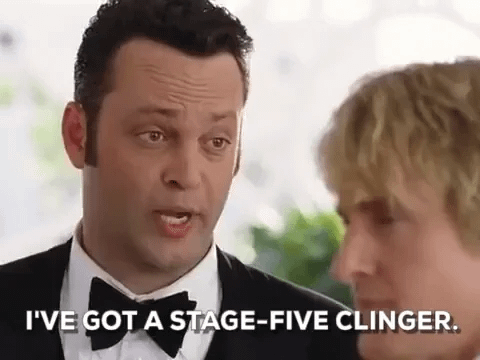
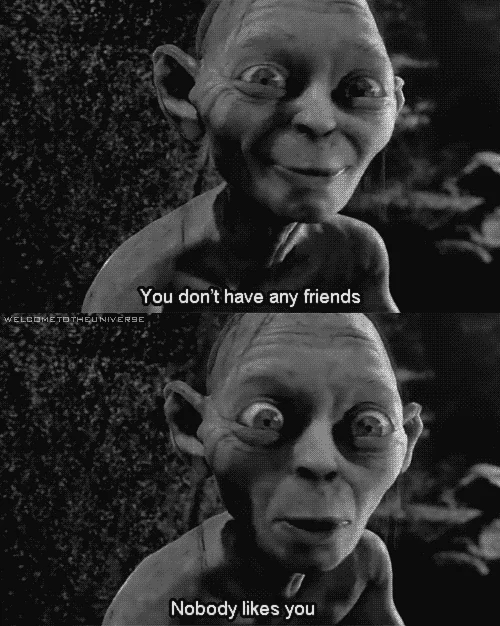
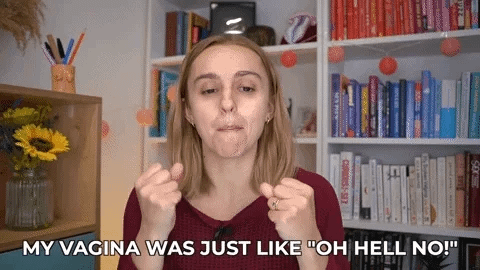
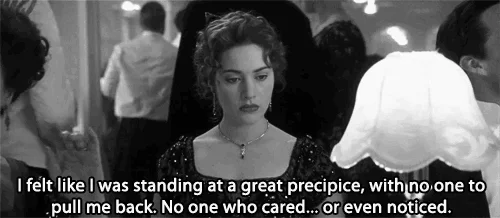
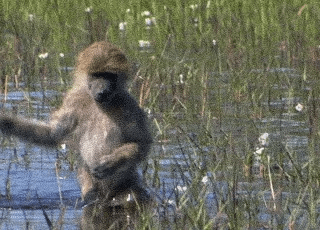

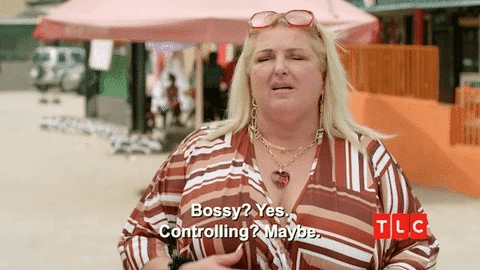


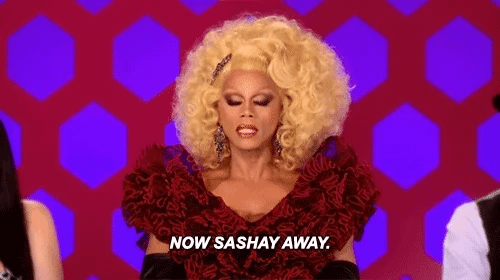
i needed this so badly rn. ive been in a horrible horrible relationship the past five years filled with abuse and abandonment, yet i still had them on this pedestal. im finally seeing someone who is healthy for me, but i had my first bpd outbreak (?) in front of them. they're still supporting me, caring for me, but when they said i needed to focus on getting better first and foremost it hurt me... even though it makes so much sense and i know i need to prioritise it too? i will read the book recs, i will keep seeking therapy, i will get better and finally experience love, instead of obsession. thank you
Absolutely dumbfounded to see this in my inbox, today. It felt as if this message was sent to me from The Universe lovingly through your writing, making me feel seen and held in the truth I've known in my heart, but for too long, felt too scared and ashamed to face directly. It's heartbreaking to realize how hurtful these patterns are to ourselves and the people we love, and I'm grateful each and every one of us has the power to forgive ourselves, tend to our wounds, and put in the effort to try and live a more peaceful, authentic, and loving life.
Thank you so much for all your beautiful writing, it truly touches the hearts of many people, in many ways you'll never know!